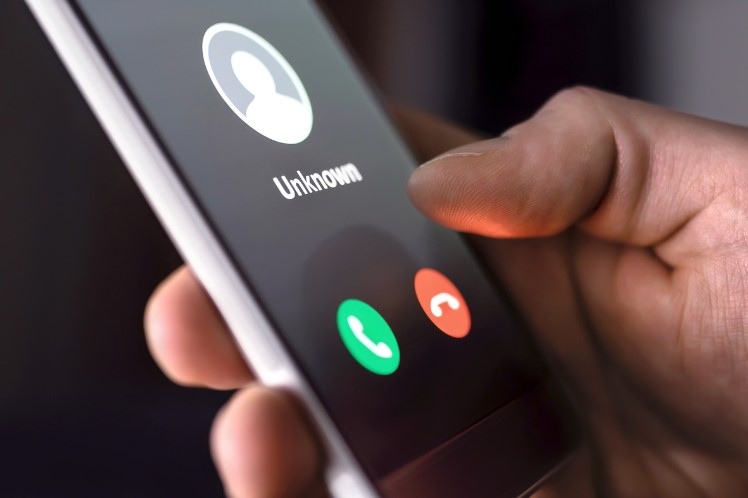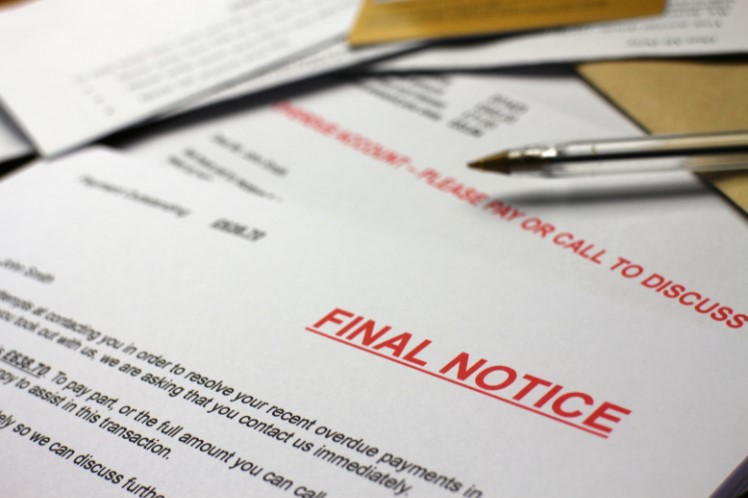
When attempting to collect on a charged-off debt, it’s not unusual for collectors to get in touch with the incorrect person. Similar names put you at risk of being mistakenly identified as the owner of a debt that is not yours. You might have to put up with the pressure and harassment of debt collection calls.
There are a few steps you can take to make sure a debt is actually your responsibility to pay before you agree to pay it. You have every right to request that the collector stop contacting you if it isn’t your debt. Here are the ways to find out who you owe money to in Canada.
Debt collection scam warning signs

Refuses to give you information.
A debt collector is required to provide you with information like the name of the creditor, the total amount owed, etc. If you’re not given the necessary information that proves that the debt is yours, then you know something is fishy.
Forces you to use a prepaid card or a money transfer as payment.
These payment methods are popular with scammers because they may be difficult to trace and make it difficult for you to retrieve your money back.
Threatens to put you in jail or assumes the identity of a government representative.
These scammers prey on people’s fear in order to pressure them into paying. You have to be sensitive to the smell of desperation from whoever is contacting you.
Promises to inform your employer, family, and friends.
Some con artists may threaten to reveal your debts to your loved ones, friends, coworkers, or employers in an effort to get you to pay. In general, a debt collector must obtain your consent before disclosing your debt to others. They can only try to contact you by learning about your whereabouts from others.
You do not recognize the debt for which the individual claims you owe money.
In order to ensure that the debt is yours, ask questions. The law requires that any debt collector who contacts you and alleges that you owe money on a debt disclose certain information to you. They should disclose these:
- The creditor’s name.
- How much is owed.
Enquires about your private financial information.
Information like your Social Security number, routing number, or bank account. Never divulge your private financial information to anyone unless you are certain of their legitimacy. Your information may be used by con artists to steal your identity.
How Do I Find Out Who I Owe Money to?

Receive notice
Within 30 days of their initial contact with you, a debt collector is required by law to send you a “Notice of Debt” letter. The amount you owe as well as the name of the company requesting payment must be stated in this letter.
Ask a collector if they have sent you this notice when they call you. Inform them that you won’t talk about the debt further unless you receive the letter and have a chance to confirm that it belongs to you.
Look up your credit report.
You can compare the Notice of Debt with your own records, specifically your credit report, once you’ve received it.
Equifax or TransUnion both offer credit reports in Canada. When you have your reports, search for the creditor and account that correspond to the details in the Notice of Debt. The possibility that the debt might not be yours is increased if you cannot find that information.
Put an end to this.
The Credit Bureau has the right to request that the debt collector stop all contact if they are unable to verify the debt. Simply inform them in writing that you do not want to be contacted about this debt any longer.
They must cut off all communication. Their only option would be to file a lawsuit against you in civil court, but since they wouldn’t be able to prove the debt, it’s unlikely that they would do so. If they tried, you could simply respond to the summons by providing the evidence you already have demonstrating that the debt is not your responsibility to pay.
But never admit to a debt unless you’re completely certain it’s yours.
How to proceed if the debt is actually yours.
If it turns out that the debt is actually yours and must be paid, be sure to carefully weigh your options. You may still have options if they refuse to accept anything other than full payment and you are unable to pay the entire amount due all at once.
For instance, even if a debt is being collected by a third party, it might still be possible to include it in a debt management program. This is where EmpireOne Credit Solutions comes in, we can help you with debt solution options that will give you peace of mind and set you up for a journey towards financial freedom. We can help with credit counselling, debt consolidation, consumer proposals, and bankruptcy. Our debt experts offer a free, friendly, and judgment-free consultation. Reach out to us today to get started!
Author Bio:
EmpireOne Credit Solutions have dedicated their lives to providing credit card balances services and we stand by your side throughout your entire case. Contact us today if you have any questions about starting the process.

